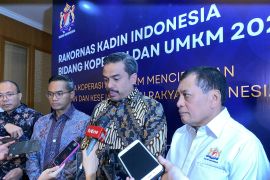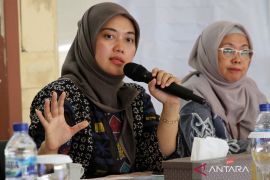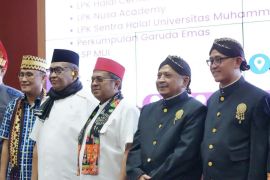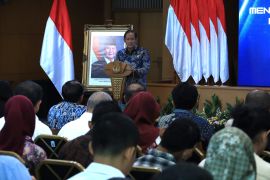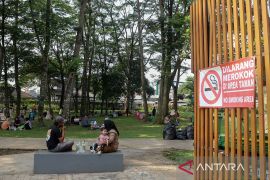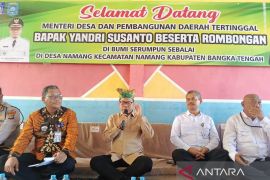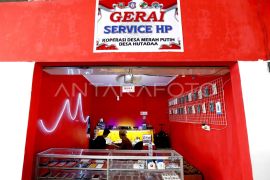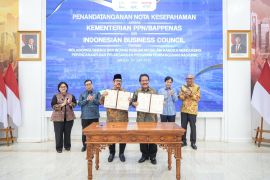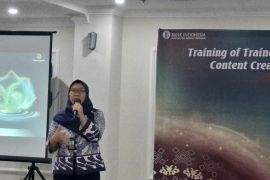Mastercard Indonesia Director, Tommy Singgih, said in press statement on Tuesday that the increased use of smartphones has continued to facilitate people to remain connected and carry out transactions wherever they are.
Mastercard Mobile Shopping surveys indicated that about 58.5 percent of its respondents carried out online transactions over the past three months.
The reasons mentioned included flexibility and convenience (49.9 percent) and ease of shopping through online facilities, with the presence of various applications (43.5 percent).
"We are aware that the order-and-delivery service, including grocery and online food shopping, has become an important part of the daily life of the people, particularly amid tight schedules and traffic gridlock," he noted.
This is particularly true in big cities, such as Jakarta, Bandung, and Surabaya.
The Indonesian Consumers Foundation (YLKI) has remarked that GNNT should not harm the interest of the public.
"YLKI focuses its attention on providing options for consumers. They should not be forced to use electronic money (e-money)," YLKI Chief Executive Tulus Abadi stated, when receiving an ASPEK Indonesia visit at YLKI office in Jakarta, on Monday.
The governments cashless transaction movement will begin with the use of electronic money cards on toll roads.
Abadi stated that consumers should not be harmed by the use of electronic money on the highway, particularly in the implementation of the GNNT policy. In fact, YLKI has had an audience with Bank Indonesia (BI) to discuss consumer protection aspects.
"We are highlighting the plans to impose a top-up fee, the non-cashable balance in the electronic money cards, and consumer funds protection against lost cards," he explained.
BI had earlier stated that electronic money card issuer banks are allowed to collect top-up fee so that they would be able to meet their need for developing non-cash transaction infrastructure.
With regard to the e-money balance top-up fee, the BI has officially set a maximum tariff at Rp1.5 thousand to be charged for an e-money refill through the off-us channel or cross-channel transactions.
For the on-us transactions, or one channel payment, BI has decided to charge the top-up fee under two provisions: one set at a maximum cost of Rp750 and the other at a free fee.
The off-us transaction is a refill made through the channels of payment belonging to different card issuers or through partners, such as supermarkets and other retailers, while the on-us transaction is a refill made through the card issuers payment channel.
The top-up cost terms is stipulated in the BI Board of Governors Regulation No.19/10/PADG/2017 dated Sept 20, 2017, on the National Payment Gateway. (*)
Editor: Heru Purwanto
Copyright © ANTARA 2017
